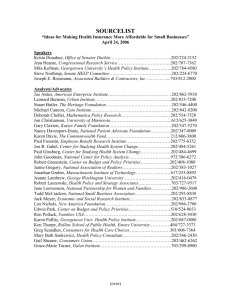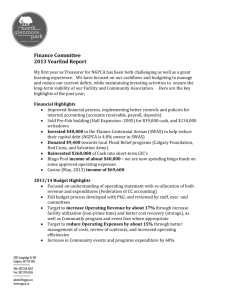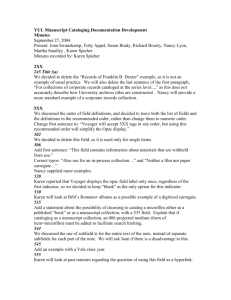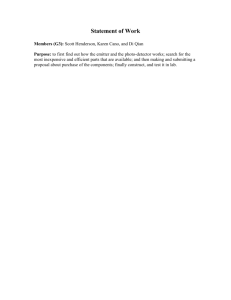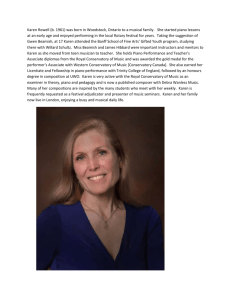Abnormal Psych HW Questions – Ch. 8 Short Answer: How is
advertisement
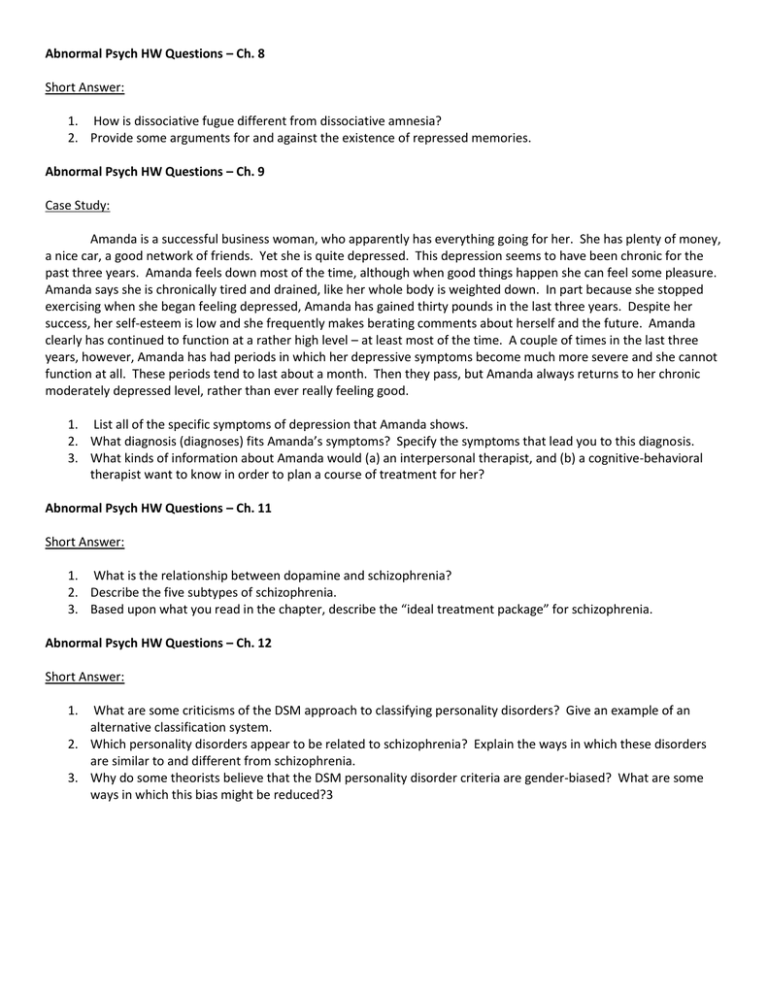
Abnormal Psych HW Questions – Ch. 8 Short Answer: 1. How is dissociative fugue different from dissociative amnesia? 2. Provide some arguments for and against the existence of repressed memories. Abnormal Psych HW Questions – Ch. 9 Case Study: Amanda is a successful business woman, who apparently has everything going for her. She has plenty of money, a nice car, a good network of friends. Yet she is quite depressed. This depression seems to have been chronic for the past three years. Amanda feels down most of the time, although when good things happen she can feel some pleasure. Amanda says she is chronically tired and drained, like her whole body is weighted down. In part because she stopped exercising when she began feeling depressed, Amanda has gained thirty pounds in the last three years. Despite her success, her self-esteem is low and she frequently makes berating comments about herself and the future. Amanda clearly has continued to function at a rather high level – at least most of the time. A couple of times in the last three years, however, Amanda has had periods in which her depressive symptoms become much more severe and she cannot function at all. These periods tend to last about a month. Then they pass, but Amanda always returns to her chronic moderately depressed level, rather than ever really feeling good. 1. List all of the specific symptoms of depression that Amanda shows. 2. What diagnosis (diagnoses) fits Amanda’s symptoms? Specify the symptoms that lead you to this diagnosis. 3. What kinds of information about Amanda would (a) an interpersonal therapist, and (b) a cognitive-behavioral therapist want to know in order to plan a course of treatment for her? Abnormal Psych HW Questions – Ch. 11 Short Answer: 1. What is the relationship between dopamine and schizophrenia? 2. Describe the five subtypes of schizophrenia. 3. Based upon what you read in the chapter, describe the “ideal treatment package” for schizophrenia. Abnormal Psych HW Questions – Ch. 12 Short Answer: 1. What are some criticisms of the DSM approach to classifying personality disorders? Give an example of an alternative classification system. 2. Which personality disorders appear to be related to schizophrenia? Explain the ways in which these disorders are similar to and different from schizophrenia. 3. Why do some theorists believe that the DSM personality disorder criteria are gender-biased? What are some ways in which this bias might be reduced?3 Abnormal Psych HW Questions – Ch. 13 Case Study: Karen is a difficult child. At school, she rarely listens to her teacher and often gets up from her chair and wanders around the classroom. When her teacher reprimands her for this, Karen either blatantly ignores the teacher or says something “smart” to the teacher, such as, “I’m too bored to sit in my seat”. Even when she sits in her seat, Karen often disrupts the other children, talking loudly at them when they are trying to concentrate, sometimes insulting them. Karen doesn’t finish her school assignments most of the time. After just a few minutes of working on an assignment, Karen declares that it is “stupid” and gets out of her seat to find something more interesting to do. On the playground, few children want to play with Karen because she throws temper tantrums if she doesn’t get to do things exactly her way. At home, Karen frequently disobeys her parents, even though she is punished harshly when she is caught disobeying. Karen is prone to dangerous activities – one night she crawled out her bedroom window onto the roof of her house, “just because I wanted to”. If siblings annoy her, Karen is prone to hitting them, even the brother who is much older and bigger than her. This brother tends to taunt Karen, calling her dumb because she doesn’t do well in school. When Karen strikes this brother, he hits her back. He has given her a black eye twice. 1. What two diagnoses may fit Karen’s symptoms? Can Karen be given both of these diagnoses? 2. List the symptoms of each of these disorders that Karen shows 3. What family factors may contribute to Karen’s behavior? Abnormal Psych HW Questions – Ch. 18 Short Answer: 1. Which types of people are most likely to be acquitted by reason of insanity? How common are such acquittals? 2. What is the American Psychiatric Association’s definition of insanity? How is it similar to and different from the M’Naghten rule and the ALI rule? 3. What are the criteria used to commit someone to a psychiatric facility involuntarily? Explain each of these criteria. 4. Why do clinician’s have a duty to protect clients’ confidentiality? Under what circumstances might a clinician justifiably violate a client’s confidentiality? Give two examples of when a clinician should NOT violate a client’s confidentiality. 5. Discuss the relationship between mental illness and violence and indicate which mentally ill patients are most likely to become violent.


